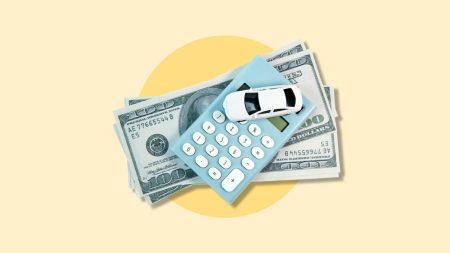Key takeaways
- Unconventional personal loans are offered by non-traditional lenders, such as online lenders and lending marketplaces.
- For borrowers with low or no credit, getting an unconventional loan can be easier than getting a traditional loan.
- Lenders for unconventional personal loans typically operate exclusively online.
If you’ve tried to borrow money at a reasonable interest rate from a traditional lender but were denied because of limited credit, income or employment history, the latest generation of personal loan lenders might be able to help. These so-called “unconventional personal loans” could be your best shot at getting a reasonable interest rate and unique perks.
What is an unconventional personal loan?
Like a traditional personal loan, an unconventional personal loan lets you borrow a fixed amount of money from a lender. You’ll need to repay the loan, plus interest charges, within an agreed-upon timeframe. The borrowed funds can be used toward upcoming purchases, like car repairs or medical bills, or to consolidate high-interest debt.
Unconventional personal loans come from nontraditional sources, such as online lenders and loan marketplaces, that may focus on nonstandard factors to evaluate your application. Consequently, you could get approved for funding even if you wouldn’t qualify at a big-name bank.
How do personal loan approvals usually work?
The lender performs a soft credit inquiry and analyzes the information in your application, including your debt-to-income ratio (DTI), to determine whether you qualify for a loan. If you’re prequalified, the lender will share your potential annual percentage rate (APR) and the loan terms it can offer
If you choose to move forward with the application, lenders conduct a “hard pull” on your credit history and might ask you for additional documentation to make a final decision.
Unconventional personal loan lenders also evaluate your creditworthiness and DTI, but may weigh those factors differently. They may also approve you based on considerations like your career or college degree.
Unique personal loan lenders
If you’re seeking a bad credit loan, Avant, LendingPoint, Upstart and Best Egg may be worth considering. Each has its own eligibility requirements and underwriting criteria, but these lenders typically work with low- or no-credit borrowers.
|
Lender |
Minimum credit score |
APR |
Repayment term |
Maximum loan amount |
|
Avant |
550 |
9.95%-35.99% |
2-5 years |
$35,000 |
|
LendingPoint |
600 |
7.99%-35.99% |
2-6 years |
$36,500 |
|
Upstart |
No requirement |
6.70%-35.99% |
3 or 5 years |
$50,000 |
|
Best Egg |
600 |
6.99%-35.99% |
3-5 years |
$50,000 |
To find the best personal loan rates for you, shop around and get prequalified with at least three lenders.
Avant
Avant offers unsecured loans for borrowers with credit scores as low as 550, which sets it apart from most other lenders that require scores in the mid-600s or better. Available loan amounts range from $2,000 to $35,000, and you can choose a term as short as 24 months to save a bundle on interest. Avant may deposit your loan proceeds as soon as the next business day following approval.
But like most lenders that cater to bad-credit borrowers, Avant charges an administration fee of up to 9.99 percent. This fee is deducted from the loan amount before you receive funds — you may need to borrow a larger loan than planned to cover this fee. Factor that into your budget before accepting a loan offer.
LendingPoint
LendingPoint works with borrowers who are considered “near-prime” with scores in the 600s. The lender uses software that looks beyond your credit score to evaluate your application and determine the ideal loan terms.
Loan amounts range from $1,000 to $36,500, and LendingPoint offers repayment terms as long as six years. For context, most lenders cap terms at five years. Depending on where you live, you may face an origination fee of up to 10 percent.
Upstart
Upstart uses AI to determine whether you’re a good fit for a loan. It considers your level of education, area of study and job history when evaluating your application. The lender claims that its underwriting model results in lower rates and a higher percentage of approved applicants. Not only does Upstart not have a minimum credit score requirement, but it also considers borrowers who don’t have enough credit history to generate a score.
However, rates and fees can be high. If you have bad credit or are new to borrowing, you can expect rates as high as 35.99% and an origination fee of up to 12 percent of your loan amount.
Best Egg
Borrowers can get loans between $2,000 and $50,000 through Best Egg. While most lenders only offer unsecured loans based solely on your creditworthiness and promise to repay, Best Egg also offers secured personal loans. By backing your loan with collateral, the risk to the lender is reduced and it is more likely to approve your application or offer a lower APR.
But secured loans come with risks: If you fall behind on your payments or default on the loan, the lender can seize your collateral to repay the debt. Before agreeing to a secured loan, be sure you have a solid repayment plan. Best Egg allows two types of collateral: your vehicle’s equity and your home fixtures (for homeowners).
Benefits and drawbacks of unconventional personal loans
Like any financial product, unconventional personal loans have both pros and cons. Here’s what to consider if you’re considering taking out an unconventional loan.
Benefits of an unconventional personal loan
- Collateral isn’t always required: Unconventional lenders provide a safe alternative to payday loans that doesn’t require collateral.
- Transparent pricing and loan fees: Reputable lenders share their rates and origination fees upfront. You may even be able to get prequalified to preview your rate without a hard credit pull.
- Easier to get approved with low or no credit: Lenders that fund unconventional personal loans typically target fair-credit borrowers. Some even offer personal loans for those with bad or no credit.
Drawbacks of an unconventional personal loan
- Higher interest rates and fees: Your APR will be higher than if you had worked on improving your credit before applying for any loan. Depending on your credit score, income and DTI, you could pay as high as 35.99 percent APR. Some lenders also charge origination fees as high as 12 percent of your loan amount
- No in-person service: Many unconventional lenders operate entirely online, meaning you’ll have to conduct all business via email or phone.
What are the credit score requirements for unconventional loans?
Even though some online lenders cater to borrowers with low credit scores or a short credit history, most unconventional lenders still have credit requirements you’ll have to meet.
For unconventional personal loans, you typically need a fair credit score or better to get approved for a competitive rate. A FICO Score of 580 to 669 is considered “fair,” though some lenders consider borrowers below that threshold. Check out Bankrate’s best fair credit loan picks if you fall into this category.
While these lenders may consider nontraditional underwriting metrics, like your education or work history, you’ll still have to demonstrate your creditworthiness by agreeing to a hard credit pull and letting the lender review your credit reports.
Bottom line
An unconventional loan could be a viable option if you can’t secure the funding you need through a traditional bank or credit union. Getting approved for a loan with competitive terms is possible, and you may not need to provide collateral.
Still, there are drawbacks to these loan products. Depending on your financial situation, you may find it more sensible to seek other alternatives if you need fast cash.
Read the full article here









